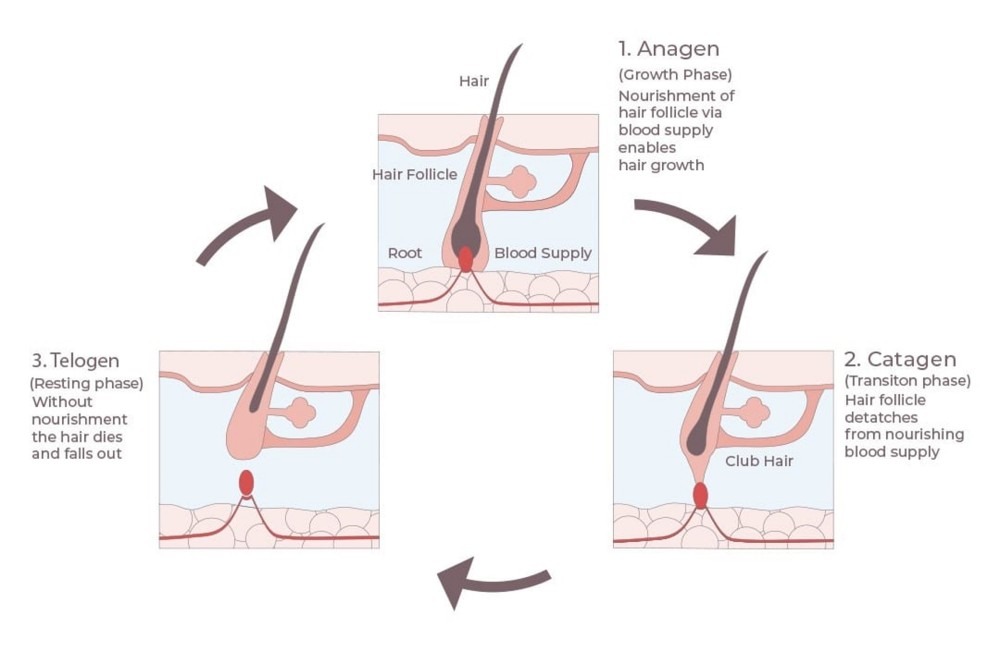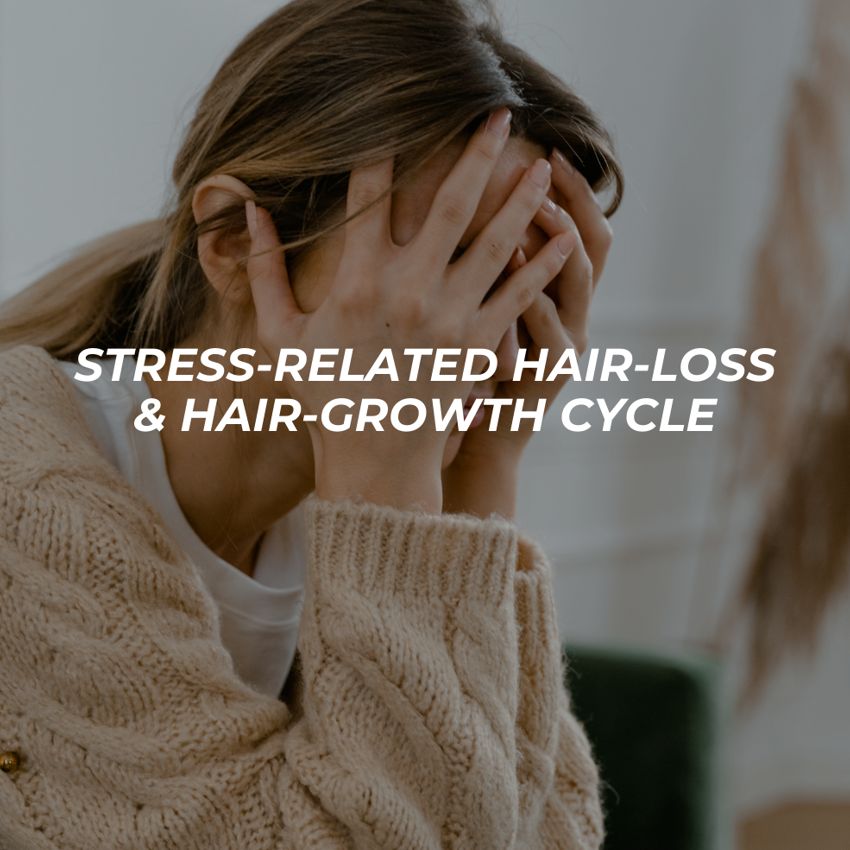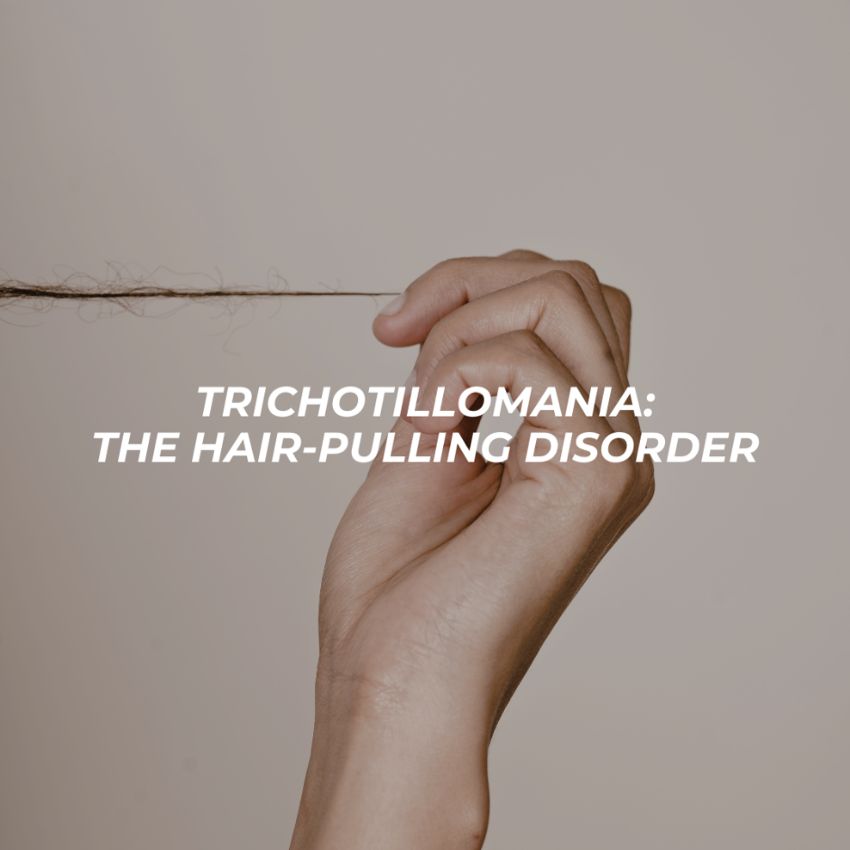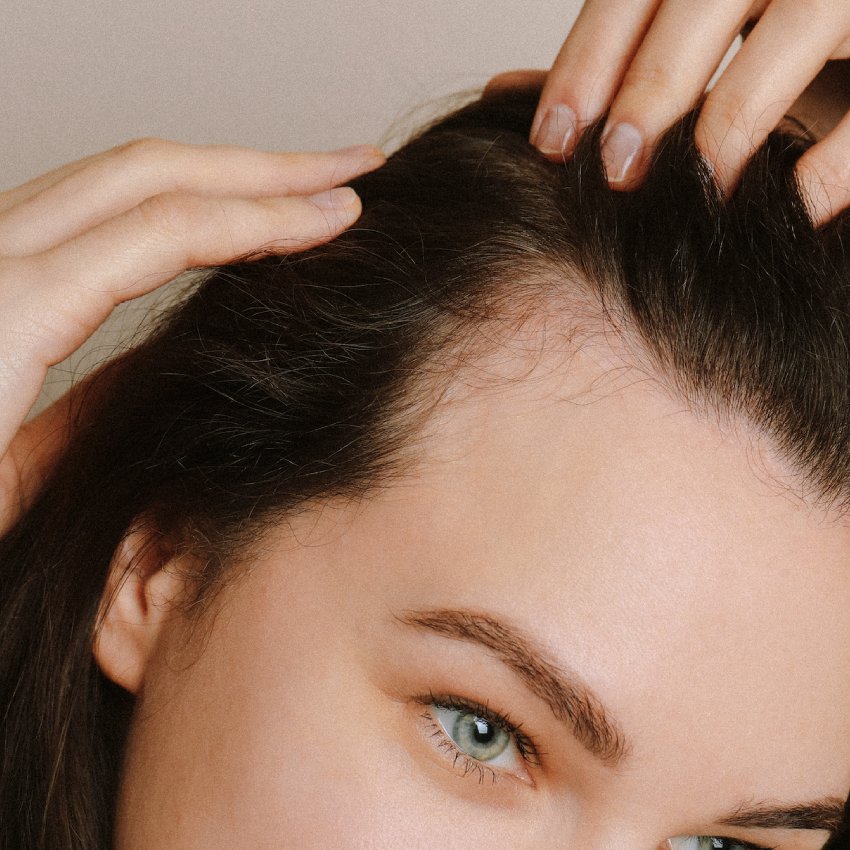Stress-Related Hair Loss, Trichotillomania
Dealing with hair loss triggered by stress? You’re not alone in this experience.
If this relates to you, come in for a free hair consultation now! Our hair specialists are sure to help you out!
Understanding
Stress-Related Hair Loss & Trichotillomania
Stress-related hair loss, technically termed telogen effluvium, occurs when stress prompts hair follicles to shift into a resting phase prematurely, resulting in noticeable hair shedding. This shedding phase often becomes evident a few months after the stressful period.
Stress can manifest in various ways, impacting not only our emotional well-being but also our physical health, including our hair. Stress-related hair loss and trichotillomania are two distinct but interconnected conditions, both affecting the hair growth cycle. Understanding this connection can provide insights into the causes and challenges of these hair concerns.

The Hair Growth Cycle and its Phases:
The hair growth cycle consists of three main phases:
1.Anagen Phase (Growth Phase):During this active phase, hair follicles are continuously producing new hair cells, leading to visible hair growth. The duration of the anagen phase varies among individuals, influencing hair length and thickness.
2.Catagen Phase (Transition Phase):After the anagen phase, hair transitions into a short, intermediate stage called the catagen phase. Here, hair growth slows down, and the hair follicle begins to shrink in preparation for the next phase.
3.Telogen Phase (Resting Phase):The telogen phase is a resting period for hair follicles. During this stage, the hair is fully formed but not actively growing. After a few months, the hair naturally sheds, and the hair follicle re-enters the anagen phase to initiate a new hair growth cycle.
Stress-Related Hair Loss and the Hair Growth Cycle:
Stress-related hair loss, scientifically known as telogen effluvium, occurs when our bodies experience significant stress, leading hair follicles to shift into the telogen (resting) phase prematurely. As a result, more hairs than usual enter the shedding phase at the same time, leading to noticeable hair loss. This process typically becomes evident a few months after the stressful event.


Trichotillomania: The Hair-Pulling Disorder:
Trichotillomania is a psychological condition where individuals have an irresistible urge to pull out their hair, often as a coping mechanism for stress, anxiety, or boredom. This repetitive behaviour can lead to patchy hair loss and, in severe cases, significant hair thinning. Trichotillomania can disrupt the hair growth cycle by prematurely removing hair during the anagen phase.
Alopecia
Stress has been recognized as a potential trigger for various forms of alopecia. The interplay between stress hormones, the immune system, and hair follicles can contribute to the development or exacerbation of alopecia conditions, particularly alopecia areata. Stressful events can disrupt the balance within the body and lead to immune responses that mistakenly attack hair follicles, resulting in patches of hair loss.


Identifying Stress Triggers and Coping Strategies:
Recognizing stress triggers and adopting healthy coping strategies can be instrumental in managing both stress-related hair loss and trichotillomania:
Stress Management: Finding effective ways to manage stress, such as engaging in relaxation techniques, exercise, or seeking professional support, can positively impact your hair health and reduce hair-pulling tendencies.
Nutrition and Self-Care: Nourishing your body with a balanced diet and taking time for self-care can promote overall well-being, including your hair health.
Gentle Hair Care: Being gentle with your hair and avoiding harsh styling practices can reduce further stress on hair follicles and minimize hair-pulling episodes.
Professional Support and Guidance:
If you are experiencing stress-related hair loss or trichotillomania, seeking professional support can provide valuable insights and personalised solutions to address your specific concerns.
The good news is that both stress-related hair loss and trichotillomania can be managed with time and proper care. Embrace a healthy and balanced lifestyle, and with the support of our trichology specialists, you can navigate through these challenges and embark on a path towards hair recovery and regrowth. Remember, taking care of your well-being goes hand in hand with nurturing your hair health. Schedule a free consultation with us today, and let’s work together to reclaim your confidence and embrace vibrant, resilient hair.



